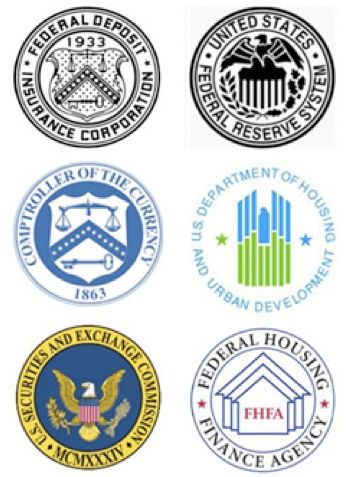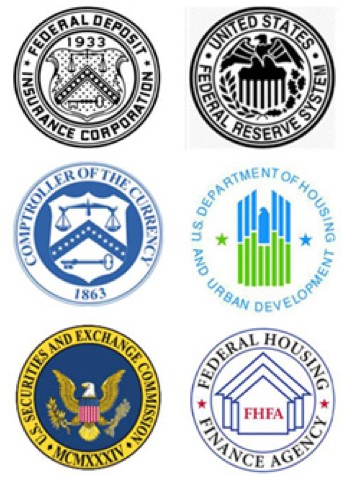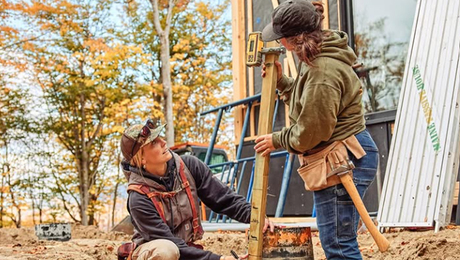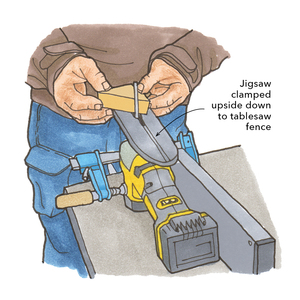
Amid all the hand-wringing over whether spring will see home prices rise, fall, or plateau, market analysts have increased their focus on the prospect of mortgage-rate increases and their possible effect on sales activity. A significant rate climb – given the expectation that rates are much more likely to go up rather than down over the next 12 months – would be a powerful motivator for qualified prospective buyers who have been waiting (and waiting) for the market to hit bottom.
Some observers see upward pressure on rates mounting because, ironically, the very homebuyers who are waiting for home prices to bottom out are sustaining demand for rentals, whose ongoing price increases are seen as an indications of rising core inflation.
Hard to say exactly how much rental rates are coming into play. A recent Wall Street Journal post points out that there is disagreement over how to properly weigh rental and other housing expenses when calculating overall consumer costs and measuring inflation. Some analysts look to the consumer-price index, where housing accounts for 32% of expenditures, or 40% of the core CPI (which excludes food and energy costs).
Pressure points for buyers
But however the index is blended – the Federal Reserve measures personal consumption expenditures, which gives less weight to housing than the CPI – rental housing costs won’t be ignored by the Fed when it sets overnight rates.
“You got to think that the traditional buyer is more concerned with rates,” Steve Grasso, director of institutional sales at Stuart Frankel, told CNBC on Monday. “Once the spring/summer kicks in, I would think many would be motivated to buy something while rates are low. Gambling that they stay low for another year is risky.”
Another looming, rates-related concern is tied to the proposed mortgage-lending regulations announced last week by the Federal Reserve and the Federal Deposit Insurance Corporation. The basic aim of the rules is to motivate lenders to maintain solid underwriting standards by requiring them to retain 5% of the loans on their books, or by requiring borrowers to post a minimum 20% down payment. Loans conforming to either of those requirements would be eligible for securitization.
The rules package, which is up for public comment through June 10, would make conforming loans more challenging to obtain because they impose relatively high credit standards (and more demand for cash, in the case of the 20% rule). But in the short term, at least, the rules would be of little concern to the vast majority of borrowers, who, as they have in the past, would continue to work with lenders who guarantee loans through Fannie Mae and Freddie Mac. For those loans, the 5% risk-retention rule and the 20% down rule wouldn’t apply, although Fannie and Freddie likely will require borrowers to pay a bit more in overall loan fees to help cover mortgage insurance costs and default risks.
So yes, prospective homebuyers who wait risk higher rates or associated borrowing costs.
A call for less-stringent financial terms
The National Association of Home Builders, among other housing-industry groups, is resolutely against the 20% down-payment proposal, which would confer “qualified residential mortgage,” or QRM, status and risk-retention exemption on each loan that meets that and a couple other QRM criteria.
“By mandating a 20% down payment on qualified residential mortgages, the Administration and federal regulators are excluding those without huge cash reserves — which constitutes most first-time home buyers and many middle-class households — from a chance to buy a home,” NAHB Chairman Bob Nielsen said in a recent press release.
True, QRM will be a tough hurdle for most. But that’s the point, and it’s unlikely to be major issue for most borrowers or much of a hindrance to a market recovery. Most of the borrowers who propel the recovery will be after loans guaranteed by Fannie and Freddie, which, even though their operations are targeted for eventual privatization, will nonetheless be in business for years to come.
Fine Homebuilding Recommended Products
Fine Homebuilding receives a commission for items purchased through links on this site, including Amazon Associates and other affiliate advertising programs.

8067 All-Weather Flashing Tape

Affordable IR Camera

Handy Heat Gun

A number of federal agencies have requested public comment on the proposed risk-retention rules for mortgage loans. Among industry groups, the National Association of Home Builders strongly opposes the rules’ 20% down-payment requirement for loans that would be rated as “qualified residential mortgages,” and therefore exempt from the proposal’s risk-retention rules.


























View Comments
So the Government will require a 20% min. deposit rule. But, if you get a mort. at Freddie and Frennie which is a quasi government agency. The 20% rule does not apply?????? um. OK. Well, here in the real world where I am at, the typical home cost 300-400K with a 20%dp of 80k and 12k closing cost plus moving cost, they are in it to start at almost 100k. Oh Yeh, the boom is coming. Don't hold your breath. Maybe some one forgot to pull their calculator out and add up the reasons why the real estate market is in the dumps. And it has nothing to do with interest rates. Interest rates have been low for several years now. So, if any one is waiting for rates to go lower, or if they think that after 10 years of record low rates, that maybe it is time to buy. Maybe they are better off as renters.
Most people that I have talked with, and there are a lot. They are scared out of their minds. 10 years of war, terrorism, extreme high real estate taxes, high heating and electric cost every month, our government is spend us into the abyss. My customers, the 250K plus income, this is what they are saying, not me. You would think that they would be the ones that would have no trouble affording it. But add education, food and travel expenses and they are done. I don't know, I'm just saying, something thing needs to change "big time" not just some rules. Because if this group of people are done, who's going to take their place. This is the group, that a few years ago, they would buy the house and then put another 150k of renovation into the house. Just think of how many jobs were kept. Just by one house. Now the thought is to get out, down size or even go back to renting.
Yesterday I heard an interesting argument concerning [part of the reason] why the housing market is so slow to recover.... It had to do with property investment value and the underwater mortgage. Essentially, potential home buyers are hesitant to sell their current homes because of the decreased value. The perceived
value of their current home is less than the actual market value of their home. But if they don't sell their current home then they are unable to purchase a new home... thereby stalling the home buying cycle.
Therefore, one answer to this problem could be to issue a tax write off on the lost value of their home.
And, it actually makes sense to me. Under the modern perception that your home is an "investment", it seems obvious that if that investment goes bad then you should be able to write it off as a bad investment; just the same as you might write off a bad business or securities investment.
While that answer isn't what everyone wants to hear these days as it would even further decrease federal tax intake, it does offer the opportunity for the lower and middle class average homeowner to take part in some of the tax games that have historically been played mostly by the upper class.
I think another advantage of this strategy would be to finally stabilize housing prices; lower prices, yes - but stable nonetheless. I see the current housing market fluctuations as being the result of a of stand-off. Sellers holding out for top dollar while buyers hold out for the bottom to hit and erratic occurring only when clusters of sellers can't hold on any longer and lose to the bank... further worsening the problem.
Now, I don't know how the issue of the blog post fits in - possibly that we are looking towards a government run mortgage monopoly or maybe that banks need to start becoming more competitive in the near future rather than less competitive like they are now. But what I do know is that limiting lower/middle class access to home buying is certainly not the answer to solving the issue of the housing market nor is it the answer to decreasing separation between the upper and middle classes.
DC
Dreamcatcher, that is one of the most interesting arguments I have heard. I agree that it would help stabilize the housing market, but possibly for the wrong reasons. I think one of the reasons we got into this mess was that too many people thought of their home as an investment rather than a place to live. This would further propel this notion. While it may seem a little unfair to those who housing is the most largest asset they will ever own, what has currently occurred may be far worse.